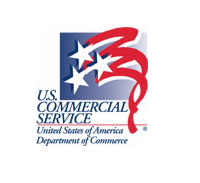

CEO Global Insights Series
Featured CEO: Mary Flowers, CEO of Sturdi-Quick International
How has the current worldwide economic situation affected your company and its customers?
Like most U.S. exporters, we’ve seen some slowdown, but having diversified internationally into 19 countries, we’ve been able to weather the current situation quite well. We find our customers are looking for all available financing options, and are being more patient and careful in their decision making process. For us, it’s a real opportunity to build on our existing relationships by staying in touch with customers and letting them know we are available to assist in any way possible.
Following up on the above question, are their certain adjustments you’ve made in your sales strategies to help retain or attract new customers in the current economic environment?
In today’s consumer savvy marketplace, customers not only want buy a product, but want the comfort of having project expertise and guidance before and after the sale. Recognizing the clients full service needs, I custom tailored a technical development team of American experts, the Global Green Development Group. Our turnkey services allow us to stay connected with our customers, going beyond the product sale to provide ongoing support that can include financing, program planning, technology transfer, training, and other support the client might need. It is how we differentiate ourselves from many our foreign competitors and it has worked pretty well for us.
What are some of the stronger international markets right now? What are some of the more challenging ones? Do you see any "unsung" markets with great potential?
Right now, Africa is probably our strongest market. It’s a really good thing for us because it hadn’t been a major player in the international finance arena and was much less affected by the economic downturn. It’s more like a cash-in-carry market, and with economic growth in West Africa forecast at about 6 percent over the next five years. We’ve provided professional services to Ghana, Cameroon, Tanzania and are undertaking a major commercial development in Nigeria. In addition, we hope to soon expand into Sierra Leone, Liberia, and the Republic of Benin.
What do you think are the prime motives for international buyers to go with the American goods?
I think quality and financing are key reasons for international buyers to seek American goods. I believe that American companies do have an advantage in that sense because we are perceived as quality manufacturers and service providers, and U.S. companies have a reputation for strong after-the-sale service. Also, our technologies may not be available in other countries which also give us a competitive edge. Finally, it helps that English is a universal language, making it easier for U.S. firms to sell in many markets.
What cultural barriers have you ran into as a result of being involved in global markets?
The architectural trends vary from market to market. We have to be aware of such customs in order to offer the desired product. For example, one of our customers from the Dominican Republic said our walls were no good. Then, visiting the home, we learned that it is custom for the wife and daughter to empty out the rooms every Saturday and hose down the walls, and as you might expect, the wallboard began to crumble over time. We then utilized waterproof cement board instead of traditional drywall. Once we resolved the issue, we enjoyed good success in that market. But had we not visited the home, we would have never known the problem. Also, people in many of the countries where we do business prefer the look and feel of concrete or brick veneer, instead of stucco.
As a member of the Southern California Regional District Export Council, you’ve mentored quite a few new-to-export companies. Can you offer some advice?
One of the biggest mistakes I’ve seen is that companies don’t have a long-term perspective when it comes to exporting. Oftentimes, new executives expect instant results, but are quickly disappointed. To be successful, you must have the commitment and be in it for the long-haul, as it can take many months or as long as three or four years, depending on your product line and overseas destination. Sales executives should work with the company president and CEO to set expectations ahead of time as they develop their export strategies. Also, U.S. companies should do their homework first by doing due diligence on potential foreign partners, and work to ensure they have good representation in foreign markets ahead of time. New-to-export companies should understand that exporting doesn’t have to be burdensome, that with the right tools and resources, it’s a viable way for even the smallest businesses to boost their bottom line.
